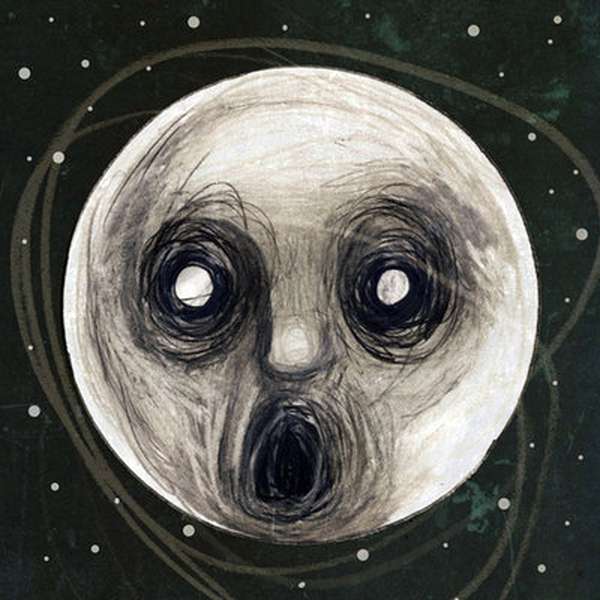Though they all claim lineage to the great acts of the 1970s, no modern progressive band can claim that they sound even remotely similar to them. Bands in the modern progressive rock genre (see Transatlantic, Spock's Beard, Coheed and Cambria) tend to sound closer akin to brightly-polished half-metal than the rock of the 70s, with a loudness and clarity that was completely unknown to their progenitors. Compared to the generally softer, dirtier, and less polished sound of their forebearers, it's hard to imagine that they are cast from the same musical mould. Even bands who are still around from that time (like Rush and Yes) sound a far cry from their earlier works.
Part of that, obviously, is just a change in the musical landscape: with better equipment comes a different standard and accepted sound. Some of that is just the inevitable march of music ever forward, constantly seeking new things to try and constantly adapting to new societal standards. But whatever the reason, there is an undeniable, substantive difference in listening to, say, Wish You Were Here and Thick as a Brick 2.
It was only a matter of time before a conscious rebellion against this steady march forward occurred. At the forefront of this effort to return to the true sound of 70s progressive rock are Opeth frontman Mikael Åkerfeldt and Porcupine Tree lead Steven Wilson, whose recent trio of albums (Opeth's Heritage, Wilson's Grace for Drowning, and their collaborative effort Storm Corrosion) marked a conscious shift in tone and style. Far from the glam and glitz of their contemporaries, the albums were unpolished, even a bit grungy and times--and they inevitably left the listener with the feeling that they truly came from an earlier era.
But despite the change in tone, the albums were missing something crucial--they just didn't sound (in the musical sense) as good as their peers. While there were undeniably some great things going on, they overall paled in comparison to recent efforts from, par exemple, Between the Buried and Me or Symphony X, whose pieces are so disparate from the bands of the 70s that it's hard to think that they were even conceivable back then. So while Åkerfeldt and Wilson had definitely made the case that a return to the old sound was possible, they had yet to prove that it was actually worthwhile, let alone preferable.
That is, prior to the release of Steven Wilson's newest solo album, 2013's The Raven that Refused to Sing (And Other Stories).
Like his recent works, The Raven that Refused to Sing marks a conscious effort on Wilson's part to recapture the sound of the bands that influenced him, and by and large he has succeeded spectacularly. From the lighter guitar tones to the specific keyboard sounds he uses, in listening to this album, one can't help but feel that they're listening to something from Gentle Giant or Emerson, Lake & Palmer (which isn't altogether unsurprising when you consider what other projects Wilson's been working on as of late).
Each of the six pieces are based on a supernatural tale with a ghost story flavour, providing the album with an incredibly haunting atmosphere. What's more, the compositions fit the tone of each piece perfectly, filled to the brim with melodies and motifs that seem designed to evoke feelings of despair and morbid curiosity. It sounds like the kind of songs that would properly be related by the side of a dimly-burning fireplace in the evening, delivered over mugs of hot chocolate and rocking chairs and with the oddly persistent wind knocking a lone branch aside the windowpane at inopportune moments.
This album has a leg up on Wilson's other projects because, for the first time, the compositions are spectacular enough to stand alongside his contemporaries. Whereas his previous solo efforts Grace for Drowning and Insurgentes were solid releases, they both (the former especially) had a lot of chaff, and none of the pieces felt particularly good enough to put up alongside the works of others. In contrast, all of the songs on this album are fantastically written, without any filler or a single moment that's left unconsidered.
The pieces are divided up halfway, with three prog epics and three shorter, ballad-like pieces. The three longer pieces are much more intense, yet never seem to deviate into the levels of power found in his contemporaries. Though they are undeniably rife with heaviness, it's the kind of heaviness you might attribute to Genesis's "Watcher of the Skies" or King Crimson's "21st Century Schizoid Man", viz. more akin to proto-metal than what we'd think of as heavy metal or hard rock today. Oh yes, and that comparison remains valid right up to the point where flutes and saxophones start entering into the mix--and goodness is that lovely.
Despite the incredible accomplishment of those pieces alone, care should be taken not to overlook the shorter ballads. They provide much needed contrast to the rest of the album with their comparative levity and softness, showcasing Wilson's talent for writing moments of unbridled melodicism. They're still dark and ghostly, but in the kind of contemplative, melancholic way that you might hear on Opeth's Damnation or most of Renaissance's discography.
The one track I want to draw particular attention to is the centrepiece "The Holy Drinker", one of the best individual songs to come out of Wilson's already amazing career. The song spins the tale of an evangelist preacher, eager to point the finger at others, who himself suffers from alcoholism. His a arrogance is such that he thinks he can best the Devil himself in drinking, but of course, he loses and is sent straight to hell. The story is creepy enough on its own; but what really sells this piece is the incredible instrumental work. The keyboards in particular are absolutely standout, producing levels of emotion worthy of Rick Wakeman or Keith Emerson, but jazz musician Theo Travis's perfect work on the reeds and winds should not be overlooked. There's also an incredible guest solo from none other than Alan Parsons (of The Alan Parsons Project fame), who it just so happens was engineer on the album as well. (In case you're unaware, Alan Parson's album engineering credentials include modestly successful albums such as Abbey Road and The Dark Side of the Moon.)
Let me say this as unambiguously as I can: any fan of progressive music (the classic rock era in particular) should own this album. Hell, any fan of rock music in general should own this album. It's half testament to the writing ability of one of the greatest musicians today and half love letter to an era past. Few albums have left me quite as happy to have listened to them as this one has.
Recommended if you like: Genesis; Emerson, Lake & Palmer; The Flower Kings



